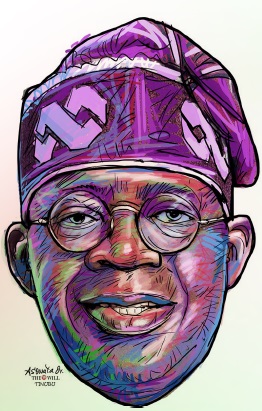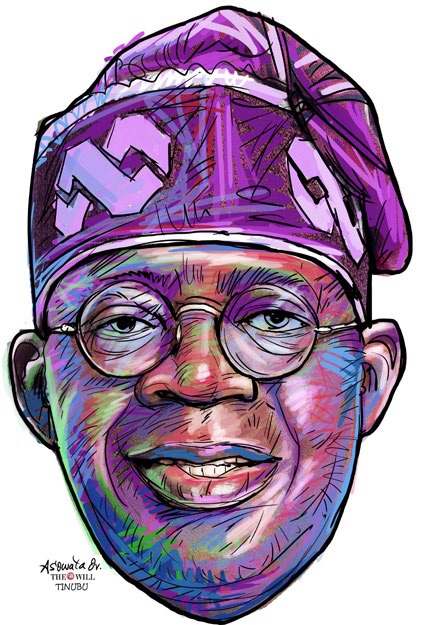July 21, (THEWILL) – The recent announcement of planned nationwide protests in Nigeria from August 1 to 10, 2024, under the banner #EndBadGovernance, is giving me concerns about the potential consequences for us and our dear nation if things go wrong. While the right to peaceful protest is a cornerstone of democracy, it is crucial to approach this event with caution and foresight.
The economic downturn and skyrocketing inflation have indeed pushed the majority of us to the brink. According to the National Bureau of Statistics, Nigeria’s headline inflation increased for the 18th consecutive time in June 2024, reaching 34.19 percent. Food inflation hit an alarming 40.87 percent, putting immense pressure on households across the country.
The sentiment that our political leaders at state and federal level are more concerned with self-enrichment than alleviating the people’s suffering is widespread. This perception is fuelled by actions, such as the exorbitant expenses incurred in the procurement of opulent and expansive residences for top government personnel, luxury jets, vehicles and yachts, while the average Nigerian struggles to put food on the table.
However, we must not forget the lessons of history. The 2012 protests during the presidency of Dr. Goodluck Jonathan over fuel subsidy removal serve as a stark reminder of how public demonstrations can be manipulated for political gain. What began as a genuine expression of citizen concern was co-opted by opposition forces to destabilise the government of the day. The long-term consequences of those actions continue to reverberate through our political landscape.
As those who paid attention will recall, on January 1, 2012, President Jonathan’s abrupt removal of fuel subsidies (a good policy), championed by then Finance Minister Ngozi Okonjo-Iweala, sparked nationwide outrage. The government’s rationale – freeing up funds for public services and benefiting the economy – was met with scepticism by citizens who viewed the subsidy as one of the few tangible benefits they received from the state.
The immediate consequences were severe: fuel prices more than doubled from N65 to N141 per litre, leading to sharp increases in transportation costs and food prices. What began as localised protests in Lagos, Abuja, and Kano quickly spread across the nation, paralysing economic activity in major cities. The protests united Nigerians across religious and social divides, with both Christians and Muslims cooperating in Kano despite their usual conflicts.
The situation escalated further when major unions, including the Nigerian Trades Union Congress and the National Labor Congress, called for a national strike. The involvement of oil and gas workers dealt a significant blow to the economy, as oil production – accounting for 90% of exports and 80% of government revenue – was severely impacted.
While the government eventually partially reinstated the subsidy, lowering fuel prices to N97 per litre, the events of 2012 demonstrated the power of collective action and the potential for rapid destabilisation.
It is also crucial to draw parallels between these events and the Arab Spring that swept across the Middle East and North Africa starting in late 2010. While the Arab Spring began with hopes for democratic reform, it led to prolonged instability, violence, and in some cases, civil war in countries like Syria, Libya, and Yemen. The death toll and displacement caused by these conflicts serve as a sobering reminder of how quickly peaceful protests can spiral into devastating conflicts.
Nigeria must learn from both its own history and the cautionary tales of the Arab Spring. While the right to protest is fundamental, we must be vigilant against forces that might seek to exploit genuine grievances for their own political gain. The delicate balance between addressing legitimate concerns and maintaining national stability is more critical now than ever.


Today, Nigeria sits on a proverbial keg of gun powder. The economic situation has worsened, with food scarcity, currency devaluation and rising costs of goods and services pushing many into desperation. Unemployment is rampant, security is precarious and basic infrastructure continues to crumble. Political commentators have even called on President Bola Tinubu to declare a state of emergency on the economy, citing the departure of multinational companies and the impact of currency devaluation on local industries.
These conditions create fertile ground for exploitation by those who may not have the country’s best interests at heart. The risk of history repeating itself is real and must be taken seriously by all stakeholders.
The right to protest is indeed enshrined in our constitution, but it comes with the responsibility to ensure the safety of all citizens. It’s worth noting that President Tinubu himself, in a 2013 post on X (formerly Twitter), urged the police not to attack protesters, stating: “Police. Do not attack protesters. Your children are involved. Your lives are involved. Your children’s future lies here.” This sentiment remains relevant today but must be balanced with the need for maintaining public order.
The government must recognise its duty to engage with the people and take their concerns into account when formulating policies. The recent decision by members of the House of Representatives to donate 50 percent of their basic salaries for six months to assist the Federal Government in addressing the economic situation is a step in the right direction, but more comprehensive action and deliberate policy, rather than knee-jerk reactions, is needed. They ought to give up their ridiculously inflated allowances and stop budget-padding, if indeed they truly care about bringing down the bloated cost of government.
Protest organisers must be vigilant against infiltration by political opportunists seeking to hijack the movement for their own ends. The demands listed in the circulating flyer, including ending the subsidy scam, reducing fuel prices, lowering tertiary education fees and cutting lawmakers’ salaries, are legitimate concerns that deserve serious consideration. However, these must be pursued through peaceful and lawful means.
Security forces have a critical role to play in maintaining order while respecting citizens’ rights. The leaked police memo directing operatives to be proactive and “mobilise well kitted and equipped personnel” ahead of the protest is concerning. Law enforcement must act within the confines of the law, which was a crucial point in the success of the Kenyan protests, using minimum force necessary to protect lives and property. Any overreach or brutality will only serve to inflame tensions further.
All parties involved must remember that we have only one Nigeria. In the current volatile climate, we are perilously close to the precipice of anarchy and civil unrest. The fear expressed by lawmakers during a recent Senate debate about potential attacks by angry citizens underscores the gravity of the situation.
It is incumbent upon the government to take immediate, concrete steps to address the economic hardships facing Nigerians. This may include targeted interventions to lower food prices, eliminating kidnappers and bandits from the farms so that farmers can return to their farmlands to boost domestic production, repair roads to ease movement of foods and people and secure our communities and roads.
Also, civil society organisations and protest leaders will have to consider alternative means of engaging with the government and making their voices heard, which will be necessary when the street protests end to keep these conversations and dialogue going.
The media has a responsibility to report accurately and objectively on both the protests and the government’s response. Sensationalism and partisan reportage will only serve to inflame tensions and misinform the public.
Ultimately, lasting change in a democracy comes through the ballot box. While protests can be an effective tool for expressing dissent, they should not be seen as a substitute for active civic engagement and participation in the electoral process.
The coming days will test our resolve as a nation. Let us rise to the occasion with maturity, wisdom, and an unwavering commitment to the greater good of our beloved country. The words of a Nigerian soldier supporting the protest resonate: “The security agents at where protesters are should protect them. The arms they are carrying are not to kill the protesters. All of us are tired.” This sentiment of shared frustration and the need for peaceful resolution should guide all parties in the days ahead.
As we navigate this critical juncture, let us prioritise dialogue, responsible citizenship, and a commitment to building a Nigeria that works for all its citizens. The path forward requires patience, understanding, and a collective effort to address the root causes of our national challenges.






